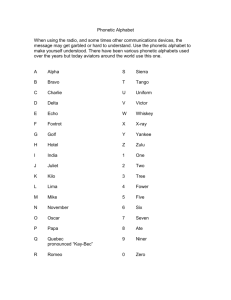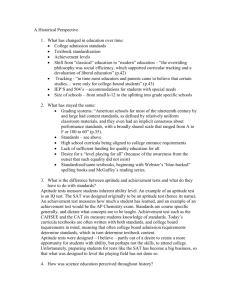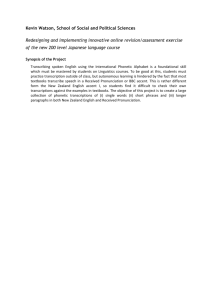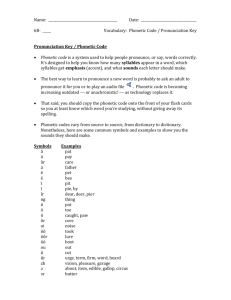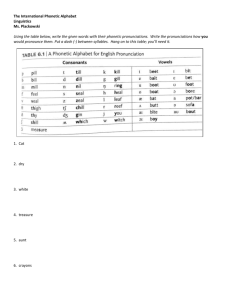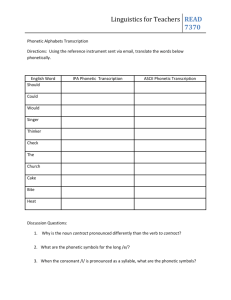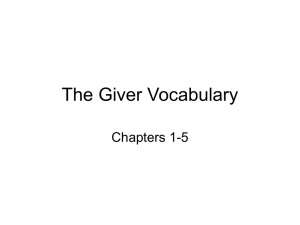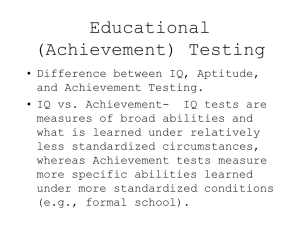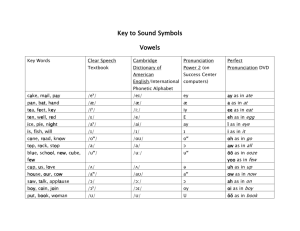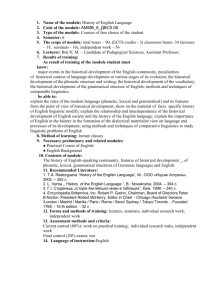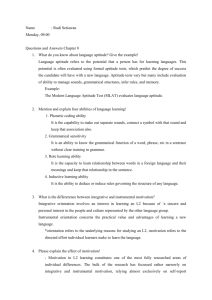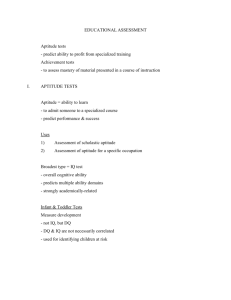institut für anglistik - Universität Innsbruck
advertisement
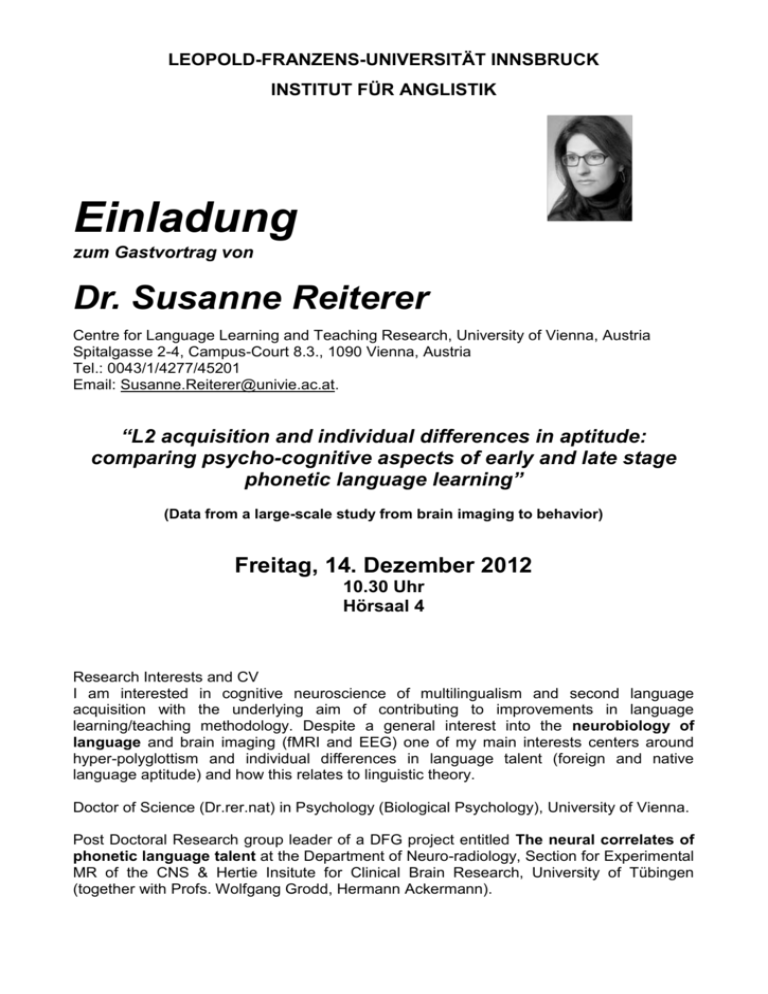
LEOPOLD-FRANZENS-UNIVERSITÄT INNSBRUCK INSTITUT FÜR ANGLISTIK Einladung zum Gastvortrag von Dr. Susanne Reiterer Centre for Language Learning and Teaching Research, University of Vienna, Austria Spitalgasse 2-4, Campus-Court 8.3., 1090 Vienna, Austria Tel.: 0043/1/4277/45201 Email: Susanne.Reiterer@univie.ac.at. “L2 acquisition and individual differences in aptitude: comparing psycho-cognitive aspects of early and late stage phonetic language learning” (Data from a large-scale study from brain imaging to behavior) Freitag, 14. Dezember 2012 10.30 Uhr Hörsaal 4 Research Interests and CV I am interested in cognitive neuroscience of multilingualism and second language acquisition with the underlying aim of contributing to improvements in language learning/teaching methodology. Despite a general interest into the neurobiology of language and brain imaging (fMRI and EEG) one of my main interests centers around hyper-polyglottism and individual differences in language talent (foreign and native language aptitude) and how this relates to linguistic theory. Doctor of Science (Dr.rer.nat) in Psychology (Biological Psychology), University of Vienna. Post Doctoral Research group leader of a DFG project entitled The neural correlates of phonetic language talent at the Department of Neuro-radiology, Section for Experimental MR of the CNS & Hertie Insitute for Clinical Brain Research, University of Tübingen (together with Profs. Wolfgang Grodd, Hermann Ackermann). ASSOCIATIONS / MEMBERSHIPS International Organisation of Human Brain Mapping (OHBM) The Society for the Neurobiology of Language Verband für Angewandte Linguistik /Austrian Society for Applied Linguistics (VERBAL) Österreichische Gesellschaft für Sprachendidaktik/ Austrian Society for Foreign Language Teaching and Learning (ÖGSD) It is a commonplace observation that people differ in their aptitude in second language acquisition, especially in the phonetic-articulatory aspect. Many cognitive and personality factors have been assumed to correlate with L2 pronunciation aptitude, like: phonetic coding ability, phonological working memory (PWM), music aptitude, or personality. The current study aimed at clarifying the (a) behavioural predictors together with (b) neurophysiological underpinnings of individual differences in L2 pronunciation aptitude in both initial- and advanced-stages of L2 acquisition by investigating an unknown foreign language – Hindi (L0), and a well trained L2 - English. We suggest that L2 pronunciation aptitude is a dynamic process, requiring a variety of neural resources at different processing stages over time. Phonological working memory and its neurobiological substrates (left-sided frontal and parietal areas) significantly contributed to the initial-stage learning. By contrast, not the PWM, but phonetic coding ability together with the personality aspect “empathy” as well as the related speech-motor and auditory perceptual distributed brain networks significantly contributed to the advanced-stage learning (English). From this we conclude that the picture is very complex and individual differences in phonetic imitation “talent” multi-causal, because many aspects contribute to success in phonetic L2 learning. We want to also highlight that the realm of emotions is an important and perhaps underestimated searching ground for individual differences in L2 achievement.
